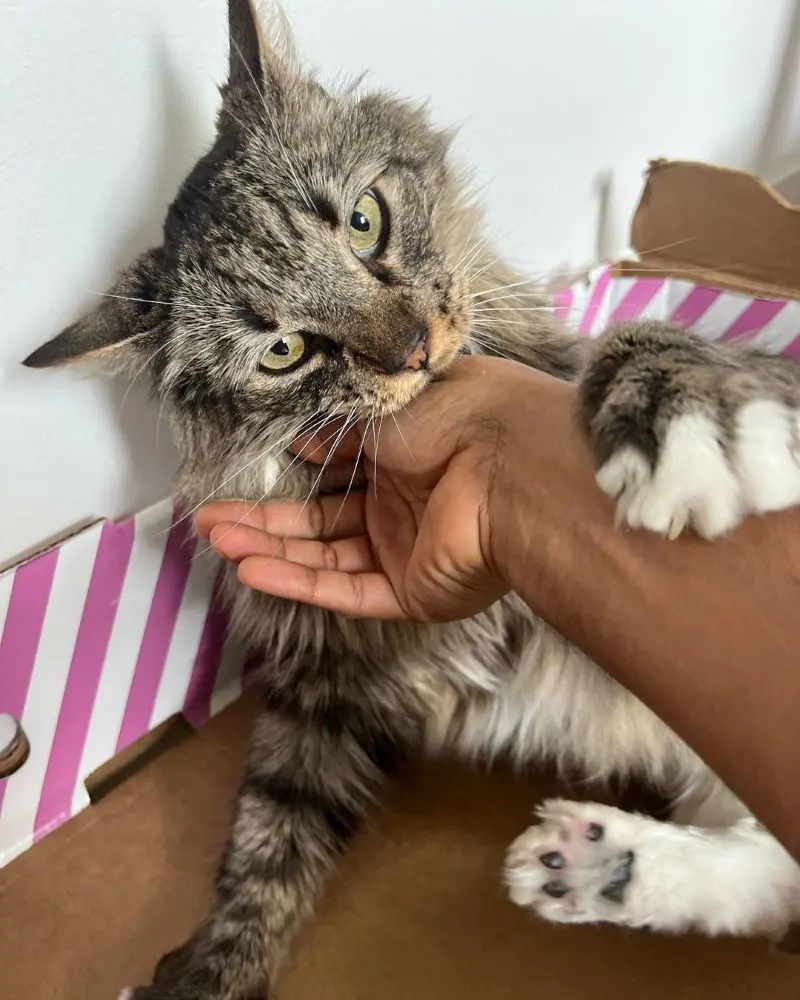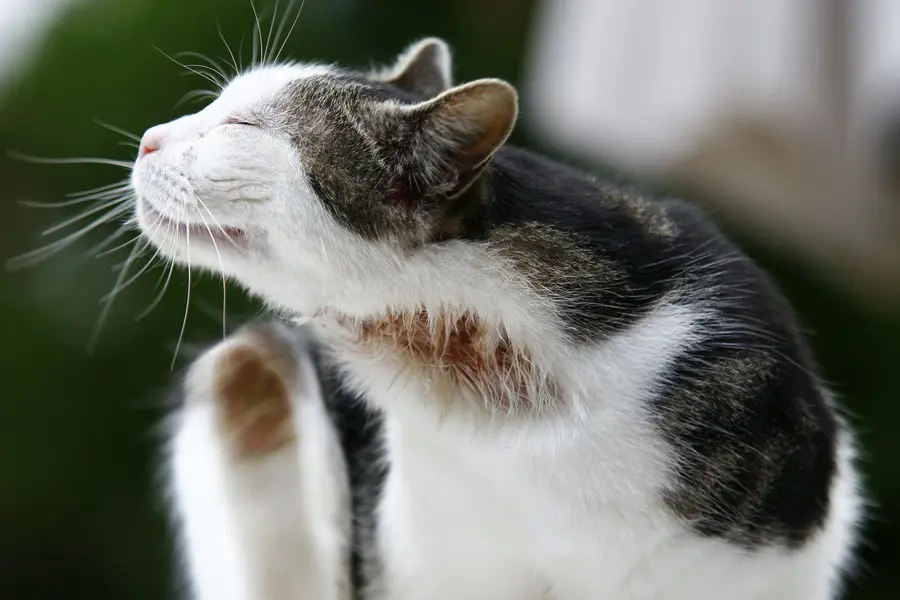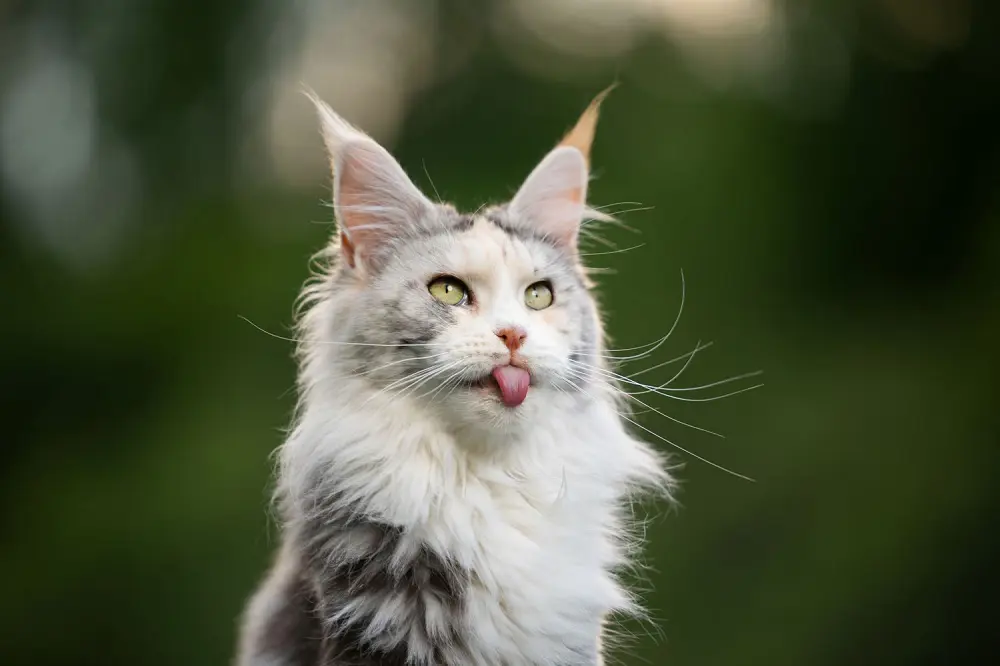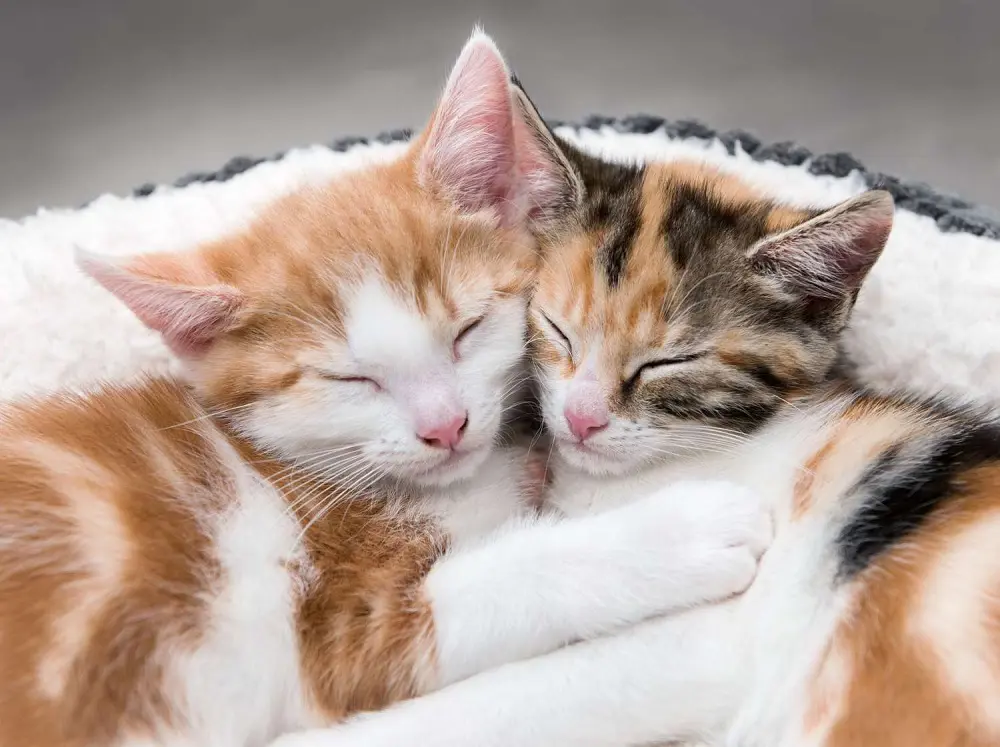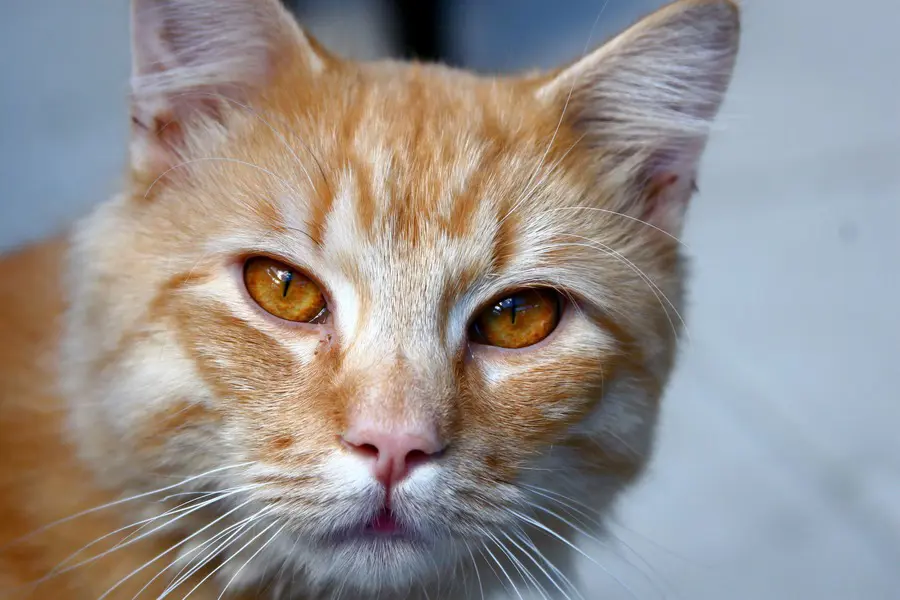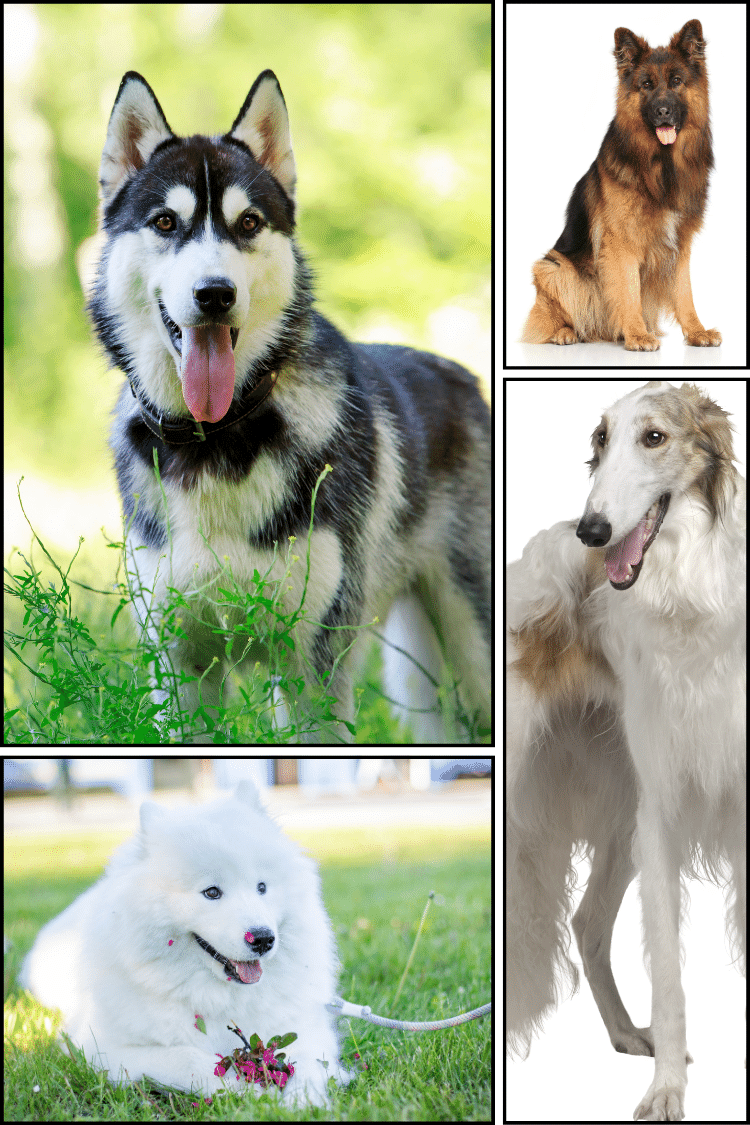Devon Rex Cat Breed Profile And Care Guide
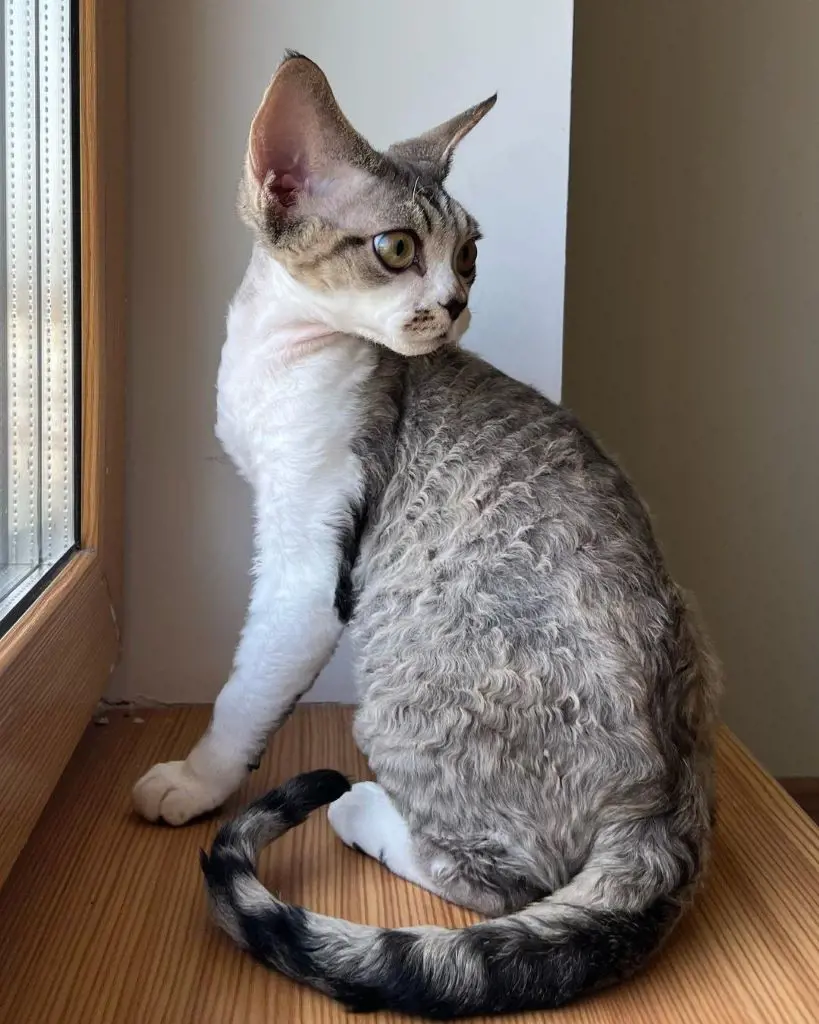
The distinctive and appealing pixie-like appearance of the Devon Rex distinguishes them from many other cat breeds. Because of their endless energy and love of playing, they are frequently referred to as "forever kittens".
The large eyes, short hair and prominent ears of the Devon Rex breed make it resemble a living plush toy. Before you choose to adopt a dog for your family, be sure you know everything there is to know about the breed.
Devon Rex Breed Overview
| Height | 10 to 12 inches |
| Weight | 6 to 9 pounds |
| Lifespan | 9 to 15 years |
| Coat length | Short |
| Colors | Black, Blue, Gray, Chocolate brown, Cream, Fawn, Silver, Orange, White |
| Shedding | Normal |
| Energy level | Hyper |
What Is A Devon Rex?
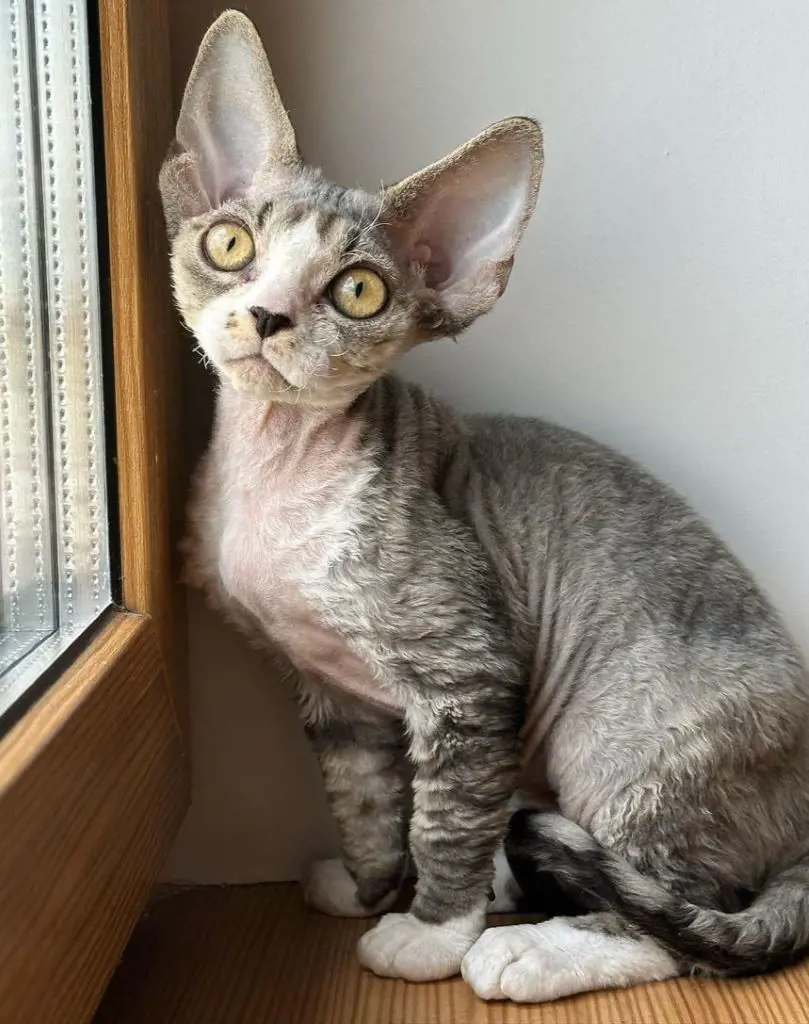
Devon Rex is a breed of domestic cat characterized by its large ears, curly or wavy coat, and slender body. Devon Rex cats are often described as "pixie-like" due to their elfin features and mischievous nature.
It is a medium-sized breed known for its alert and active nature. The term "Rex" comes from Latin and signifies "king," it also characterizes cats and rabbits with a specific curly coat.
Devon Rex Origin And History
Devon Rex originated in Devon, England. The breed was first discovered by Beryl Cox in a tin mine in Buckfastleigh, Devon, in 1960.
Beryl found a curly-coated kitten with large ears and decided to breed her with her pet tomcat. The curly coat of the Devon Rex is a result of a natural genetic mutation.
Devon Rex Physical Appearance
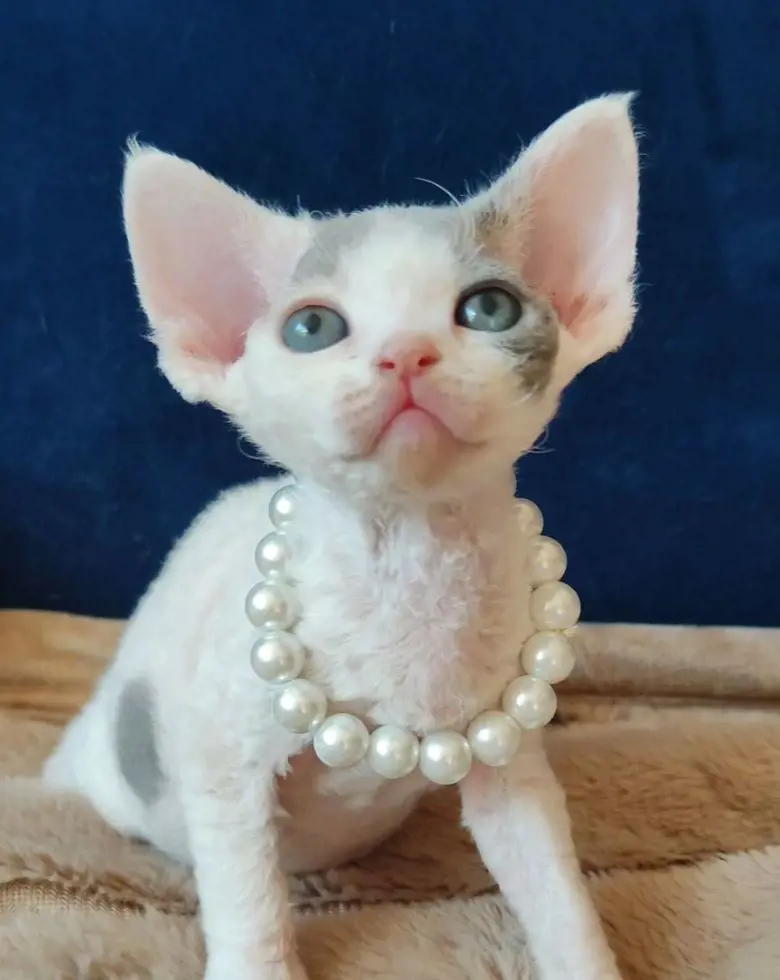
Devon Rex is a small to medium-sized cat breed with a slender and muscular body. Here are some physical traits commonly associated with the breed.
Coat
The most distinguishing feature of the Devon Rex is its unique coat, which is short, curly, and soft to the touch. The coat is often described as resembling a suede or lamb wool. However, not all Devon Rex cats have the same degree of curliness in their coat.
Head
The head of a Devon Rex is relatively large in proportion to its body. It has a wedge-shaped appearance with high cheekbones and a prominent forehead. The breed is known for its large, low-set ears that are wide at the base and set far apart.
Eyes
Their eyes are large, almond-shaped, and often have an alert and curious expression. The color of their eyes can vary and includes shades of green, gold, or copper.
Nose
The breed typically has a straight nose with a slight curve towards the forehead. The nose is usually short and broad.
Ears
Devon Rex cats have large, expressive ears that are set low on their heads. These ears are one of the breed's defining characteristics, contributing to their endearing and elf-like appearance.
Body
They have a medium-sized body with a slender and elegant build. They are muscular and well-proportioned. Despite their small stature, they have a sturdy and agile frame.
Tail
The tail of a Devon Rex is long, slender, and tapers to a point. It is typically covered with a fine layer of fur and may have some curls or waves.
Colors
Devon Rex cats come in a wide variety of coat colors and patterns.
Solid Colors
- Black
- White
- Blue
- Chocolate
- Lilac
- Caramel
- Cream
- Red
Bi-Colors
- Black and White
- Blue and White
- Chocolate and White
- Lilac and White
- Caramel and White
- Cream and White
- Red and White
Patterns
- Tabby
- Tortoiseshell
- Calico
- Pointed
- Colorpoint
Devon Rex Personality
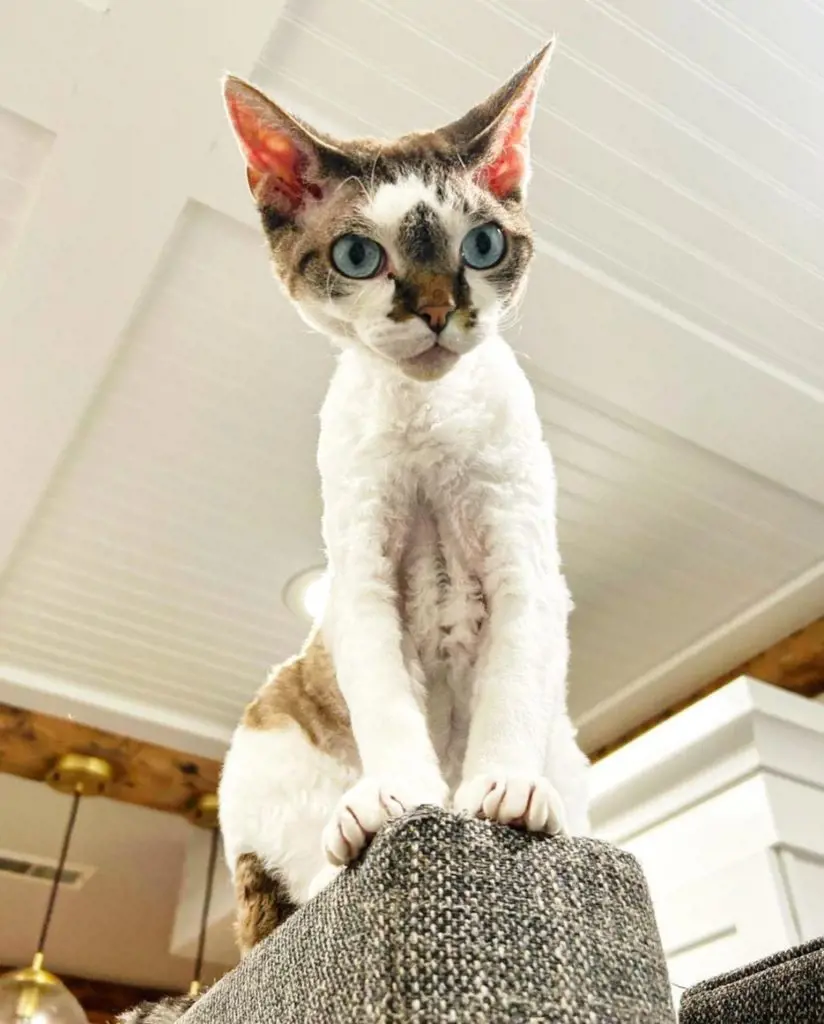
Devon Rex is known for its distinctive and endearing temperament, which combines playful, affectionate, and social qualities. Here are some of its personality traits.
Playful
They are exceptionally playful and maintain their kitten-like behavior well into adulthood. They are naturally curious and enjoy interactive play with toys, feather wands, and other objects. They often invent games and have a playful spirit that delights their owners.
Affectionate
Devon are highly affectionate and seek close bonds with their human family members. They love cuddling, snuggling, and being near their owners. Many Devon Rex cats are known to be "lap cats" who enjoy sitting on their owner's lap or curling up next to them.
Social
These cats are incredibly social and thrive on human interaction. They are not typically aloof or independent and often want to participate in family activities. They may follow their owners around the house and enjoy being in the center of the action.
Intelligent
They are intelligent and curious. They are quick learners and may even figure out how to open doors or solve simple puzzles. Their intelligence makes them entertaining companions who enjoy mental stimulation.
Gentle
Devons are generally gentle in their interactions with people and other pets. They are not known for aggressive behavior and are often well-mannered and considerate.
Adventurous
These cats have an adventurous spirit and enjoy exploring their environment. They may investigate new objects or areas of the home and can be pretty agile in their movements.
Vocal
While they are not excessively vocal, Devon Rex cats may use soft and sweet meows to communicate with their owners. They are known to "talk" when seeking attention or expressing contentment.
Adaptable
Devons tend to adapt well to different living environments and lifestyles. They are flexible and can thrive in various household settings.
Loving Companions
These cats make loving and devoted companions. They often provide emotional support and comfort to their owners, making them cherished family members.
Enthusiastic Eaters
Many Devons have hearty appetites and may be enthusiastic eaters. It's essential to monitor their food intake to prevent overeating and obesity.
Sensitive
Some Devon Rex cats can be sensitive to changes in their environment or routine. They may appreciate a stable and predictable home life.
Are Devon Rex Cat Hypoallergenic?
Devon Rex cats are often considered hypoallergenic to some extent, but it's essential to understand that no cat breed is entirely hypoallergenic.
People with cat allergies typically react to a protein found in a cat's skin cells, saliva, and urine, known as Fel D 1.
Devon Rex cats may produce fewer allergenic proteins than some other breeds, but the level of allergenicity can still vary from one individual cat to another.
How To Care For A Devon Rex Cat?
Caring for a Devon Rex cat involves providing the right environment, diet, grooming, and healthcare to ensure their well-being. Create a safe indoor environment for your Devon Rex, as they are sensitive to extreme temperatures and can be prone to sunburn due to their short fur.
Some essential care tips are down below:
Grooming Tips
- While Devon Rex cats have short fur, they still benefit from regular grooming to remove loose hair and prevent matting. Brush their coat gently with a soft brush or grooming glove.
- Bathing may be necessary occasionally to keep their coat clean, as they produce less oil due to their unique coat structure. Use a cat-specific shampoo.
- Clean their ears regularly, as they can accumulate wax. Use a soft, damp cloth or a cat-specific ear-cleaning solution.
Exercise Needs
Devon Rex cats are known for their playful and active nature, and they have moderate exercise needs. While they are not as high-energy as other breeds, they still benefit from daily physical activity and mental stimulation to keep them happy and healthy.
Engage in daily interactive play sessions using feather wands, laser pointers, or interactive puzzle toys to stimulate them mentally and physically.
Install cat trees, climbing shelves, or wall-mounted shelves to encourage climbing and exploration. Devons enjoy being at different heights and will appreciate the opportunity to climb and jump.
Nutrition
Feed your Devon Rex a balanced and nutritious diet appropriate for their age, activity level, and health status. Consult with your veterinarian for dietary recommendations. Ensure access to clean, fresh water at all times.
Social Interaction
Devons are social cats and thrive on human companionship. Spend quality time playing, cuddling, and engaging with your cat to fulfill their interaction needs.
Consider having another cat or pet as a companion if your Devon Rex enjoys the company of other animals.
Devon Rex Health Issues
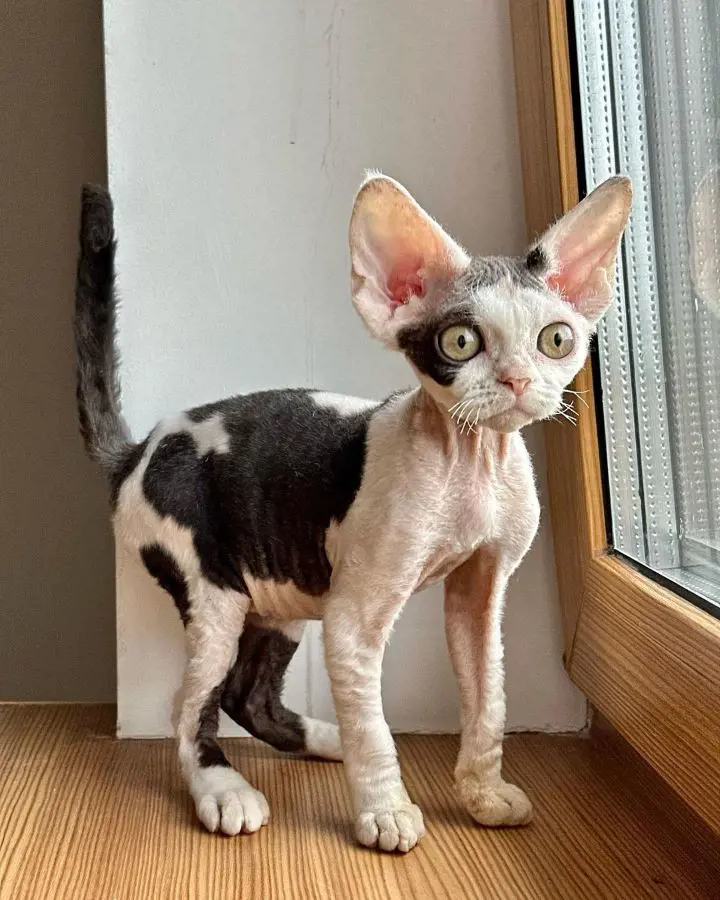
Here's a list of common minor and serious health issues that can affect Devon Rex cats.
Common Minor Health Issues
- Dental Issues
- Ear Wax Buildup
- Respiratory Infections
- Skin Issues
Serious Health Issues
- Hypertrophic Cardiomyopathy (HCM)
- Hip Dysplasia
- Patellar Luxation
- Gastrointestinal Issues
- Asthma
- Heat Sensitivity
- Urinary Tract Issues
Devon Rex Life Expectancy
The lifespan of a Devon Rex cat typically ranges from 10-15 years or even longer with proper care. Several factors can influence a cat's lifespan, including genetics, diet, healthcare, and overall living conditions.
It's essential to provide your Devon Rex with proper care, a loving environment, and regular veterinary attention to help them live a long, healthy, and happy life.
Devon Rex Cost
If you purchase a pet-quality Devon Rex kitten from a reputable breeder, the cost can range from $800 to $2,500 or more. Prices will vary based on the breeder's reputation, the kitten's lineage, and the region.
On the other hand, if you choose to adopt a Devon Rex from a shelter or rescue organization, the adoption fee is usually lower than purchasing from a breeder. Adoption fees typically range from $50 up to $150.
Similarly, if you are interested in a show-quality Devon Rex with the potential to participate in cat shows, the price can be significantly higher, often exceeding $2,500.
Where To Buy Devon Rex Cat?
Finding a reputable Devon Rex breeder in the USA involves thorough research and careful consideration. Reputable breeders prioritize the health and well-being of their cats and adhere to responsible breeding practices.
To find a Devon Rex cat, you can start by contacting breed clubs and checking online resources. Here are a few breeders in the USA known for Devon Rex cats:
- Devon Heaven (Indiana)
- Czarcats Devon Rex (Florida)
- KittyDevon (California)
- SteedCats (Oregon)
- DevonWoods (Ohio)
You may also consider joining online Devon Rex enthusiast groups and communities on platforms like Facebook. Members often share information about reputable breeders and may have recommendations based on their experiences.
Top Lists


